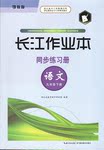题目内容
For some people, music is no fun at all. About four percent of the population is what scientists call “amusic.” People who are amusic are born without the ability to recognize or reproduce musical notes (音调). Amusic people often cannot tell the difference between two-songs. Amusics can only hear the difference between two notes if they are far apart on the musical scale.
As a result, songs sound like noise to an amusic. Many amusics compare the sound of music to pieces of metal hitting each other. Life can be hard for amusics. Their ability to enjoy music sets them apart from others. It can be difficult for other people to identify with their condition. In fact, most people cannot begin to grasp what it feels like to be amusic. Just going to a restaurant or a shopping mall can be uncomfortable or even painfull. That is why many amusics intentionally stay away from places where there is music. However, this can result in withdrawal and social isolation. “I used to hate parties,” says Margaret, a seventy-year-old woman who only recently discovered that she was amusic. By studying people like Margaret, scientists arc finally learning bow to identify this unusual condition.
Scientists say that the brains of amusics are different from the brains of people who can appreciate music. The difference is complex, and it doesn’t involve defective hearing. Amusics can understand other nonmusical sounds well. They also have no problems understanding ordinary speech. Scientists compare amusics to people who just can't sec certain colors.
Many amusics are happy when their condition is finally diagnosed (诊断). For years. Margaret felt embarrassed about her problem with music. Now she knows that she is not alone. There is a name for her condition. That makes it easier for her to explain. “When people invite me to a concert I just say. “No thanks. I'm amusic,”* says Margaret. “I just wish I had learned to say that when I was seventeen and not seventy.”
65. Which of (he following is true of amusics?
A. Listening to music is far from enjoyable for them.
B. They love places where they are likely to hear music.
C. They can easily tell two different songs apart.
D. Their situation is well understood by musicians.
66. According to paragraph 3, a person with “defective hearing” is probably one who ______ .
A. dislikes listening to speeches B. can hear anything nonmusical
C. has a bearing problem D. lacks a complex hearing system
67. In the last paragraph, Margaret express that ______ .
A. her problem with music had been diagnosed earlier
B. she were seventeen years old rather than seventy
C. her problem could be easily explained
D. she were able to meet other amusics
68. What is the passage mainly concerned with?
A. Amusics’ strange behaviours. B. Some people’s inability to enjoy music.
C. Musical talent and brain structure. D. Identification and treatment of amusics.
【语篇解析】这是一篇说明文,讲述了一群特殊的人——amusic(没有乐感的人),对他们而言,音乐如同噪音一般,没有任何乐趣。没有欣赏音乐的能力给他们的生活带来了诸多不便,不过,令人高兴的是,他们的这种状况目前已得到诊断,他们的大脑与能够欣赏音乐的人的大脑有所不同,而且这种差异很复杂。
| 段落 | 关键词、句 | 大意推测 |
| 第一部分(Para. 1) | no fun at all;four percent of population;without the ability;recognize or reproduce musical notes;cannot tell the difference | 界定amusic没有乐感的人:没有丝毫乐趣;4%的人口;没有能力;辨别或重现乐调;不能辨别出区别 |
| 第二部分(Para. 2) | like noise;apart from others;difficult for other people to identify with;result in withdrawal and social isolation | 没有乐感给他们的生活带来的艰辛:像噪音;远离他人;对其他人而言很难去认同;导致退出与社会孤立 |
| 第三部分(Para. 3-4) | are different from;complex;doesn’t involve defective hearing;is finally diagnosed;makes it easier for her to explain | 症状终于得以诊断:与……不同;复杂;与听力障碍无关;终于确诊;对她来说解释起来容易多了 |
65.答案:A
解析:细节理解题。根据“That is why many amusics intentionally stay away from places where there is music”(那就是许多没有乐感的人有意地远离有音乐的地方的原因),由此可以排除B项“他们喜爱很可能听到音乐的地方”。根据“Amusic people often cannot tell the difference between two songs”(没有乐感的人经常不能说出两首歌曲的不同)排除C项“他们能很容易地区别出两首歌”。根据文中“It can be difficult for other people to identify with their condition”(对于其他人来说,认同他们会很难),因此排除D项“音乐家们很理解他们的境况”。最后根据文章的第一句For some people, music is no fun at all.About four percent of the population is what scientists call amusic(对于一些人来说,音乐对他们说没有任何乐趣而言),可知A项“听音乐对他们来说完全不是愉快的”为正确答案。
66. 答案:C
解析:判断推理题。根据关键词defective hearing定位第三段,根据“……and it doesn’t involve defective hearing. Amusics can understand other nonmusical sounds well. They also have no problems understanding ordinary speech. Scientists compare amusics to people who just can’t see certain colors”(它与听力障碍无关。没有乐感的人能够很好地理解其他非音乐的声音。对于普通的演讲理解起来也没任何问题。科学家们把没有乐感的人比作不能看见某些颜色的人),由此排除A 项“不喜欢听演讲的人”;B项“能听到任何非音乐的声音”以及D项“缺乏一个复杂的听力系统”。锁定答案C项“有听力障碍的”。
67. 答案:A
解析:细节判断题。根据关键词last paragraph,定位最后一段,找到Margaret说的那句话“I just wish I had learned to say that when I was seventeen and not seventy”(我只是希望我十七岁而不是七十岁的时候学会说那句话啊),这是一个虚拟语气的句子,可以看出Margaret说这句话的时候,已经七十岁了,因此排除B项“她十七了而不是七十了”,同时也排除C项“她的问题很好解释”;选项D“她能见到其他的没有乐感的人”从Margaret的愿望中,我们看不出这个意思了,因此排除D项。所以正确答案是A项。
68. 答案:B
解析:主旨大意题。要准确深刻地理解一篇文章,则必须对文章的结构有所了解,把握全篇的文脉。文章的第一段告诉读者:大约4%的人音乐对于他们而言,没有任何乐趣可言,他们没有辨别与再现音调的能力;第二段讲述歌曲对于没有乐感的人来说听起来像噪音,以及由此给他们的生活带来的不便;第三段分析了原因,是因为他们的大脑与能欣赏音乐的人的大脑不同造成的,但这又不同于有听力障碍的人;最后一段以Margaret为例,说明他们的这种状况最终得以诊断。因此,可以排除A项“没有乐感的人奇怪行为”C项“音乐才能与大脑结构”以及D项“没乐感的人的区别与治疗”,锁定答案B项“一些人没有欣赏音乐的能力”。

 黄冈冠军课课练系列答案
黄冈冠军课课练系列答案 长江作业本同步练习册系列答案
长江作业本同步练习册系列答案Humor is a most effective, yet frequently neglected, means of handling the difficult situations in our lives. It can be used for patching up differences, apologizing, saying “no,” criticizing, getting the other fellow to do what you want without his losing face. For some jobs, it’s the only tool that can succeed. It is a way to discuss subjects so sensitive that serious dialogue may start a quarrel. For example, many believe that comedians on television are doing more today for racial and religious tolerance than people in any other forum.
Humor is often the best way to keep a small misunderstanding from escalating into a big deal. Recently a neighbor of mine had a squabble with his wife as she drove him to the airport. Airborne, he felt miserable, and he knew she did, too. Two hours after she returned home, she received a long-distance phone call. “Person-to-person for Mrs. I. A. Pologize,” intoned the operator. “That’s spelled ‘P’ as in…” In a twinkling, the whole day changed from grim to lovely at both ends of the wire.
An English hostess with a quick wit was giving a formal dinner for eight distinguished guests whom she hoped to enlist in a major charity drive. Austerity(节俭)was a fashion in England at the time, and she had asked her children to serve the meal. She knew that anything could happen—and it did, just as her son, with the studied concentration of a tightrope walker, brought in a large roast turkey. He successfully elbowed the swinging dining-room door, but the backswing threw the bird onto the dining-room floor.
The boy stood rooted: guests stared at their plates. Moving only her head the hostess smiled at her son,” No harm, Daniel,” she said. “Just pick him up and take him back to the kitchen”… she enunciated clearly so he would think about what she was saying… “and bring in the other one.”
A wink and a one-liner instantly changed the dinner from a red-faced embarrassment to a conspiracy of fun.
【小题1】What is the main idea of the passage?
| A.Humor is the key to success in our work and our lives. |
| B.Humor enables us to cope with difficult situation effectively. |
| C.Humor is the only best way to criticize someone without losing his face. |
| D.Humor makes fun of any difficult situations. |
| A.Comedians on TV are believed to have done a lot in making people more tolerant of racial and religious differences. |
| B.To make up differences, humor is a most acceptable as well as a most effective means. |
| C.People often turn to humorous ways when meeting with difficult situations because of its effectiveness. |
| D.Only by adopting the means of humor can one succeed in some jobs. |
| A.the son had to cook another turkey for the guests |
| B.she already had made more than one turkey ready for the dinner |
| C.some other dish would be served instead of a turkey |
| D.the son could serve the same turkey after it was cleaned |
The following are introductions to some programs that BBC I London will show on TV.
| 12:25am Tuesday | The Real Swiss Robinson Family Laura worried that her children have had their life too easy due to her husband’s career in big business, so she decides to take her teenagers to the Cook Islands to experience the simple life. They face storms and a lack of food, but Laura is happy as their local guide shows them the island’s wealth of rare fruits and foods. |
| 11:00a.m Wednesday | A team have come across an armed man who is holding two baby apes who were captures .One of them, David, is sent to a medical emergency in the forest. Later a center director, Nielsen, finds a suitable place to set free more rescued animals. |
| 7:50p.m Thursday | Lost Building of Britain Simon Thurley visits the ruins of Glastonbury Abbey(修道院), which ,before its destruction by Henry VIII, was famous for some of the most amazing stained glasses of its age. It also had a great deal of financial power, acting as the center of an influential business empire. Eventually, it was the king’s envy of the abbey’s wealth that changed the abbey’s fate. |
| 10:35 p.m. Thursday | Nigella Express Nigella presents ideas for impromtu(即兴的) cooking, from new recipes and suggestions for taking advantage of the food you have to make quick , simple and impressive meals. |
| A.Life on the Cook Islands is too simple. |
| B.Her husband faces difficulties in his business |
| C.Storms are approaching her hometown |
| D.Her children may not know how to cherish life |
| A.10:35 p.m on Thursday. |
| B.7:50 p.m on Thursday |
| C.11:00 a.m on Wednesday |
| D.12:25 a.m on Tuesday |
| A.David is a farmer |
| B.Henry VIII set up a business empire in the Abbey |
| C.Nielsen is an animal-lover |
| D.Glastonbury Abbey is famous today for its stained-glass |
信息匹配(共5小题,满分10分)
请阅读下列应用文及相关信息,并按照要求匹配信息。请在答题卡上将对应题号的相应选项字母涂黑。
以下是演讲会的资料:
|
A Are you interested in “Dream of the Red Mansion” (Hong Lou Meng)? Listen to a lecture on this classical novel. Venue: National Museum of Chinese Modern Literature (Beijing) Time: 9:30 a.m. Price: free Tel: 010 – 84615522 |
B “Jiaguwen” is among the oldest pictographic characters in the world.How much do you know about it? Get all the answers at this free lecture. Venue: Dongcheng District Library (Beijing) Time: 9:00 a.m. Price: free Tel: 010 – 64013356 |
|
C Former United Nations interpreter Professor Wang Ruojin speaks about her experiences at the UN and shares her understanding of the cultural differences between East and West. Venue: National Library of China (Beijing) Time: 1:30 p.m. – 4:00 p. m. Price: free Tel: 010 – 68488047 |
D Qi Baishi, one of China’s greatest modern painters, was also a poet, calligrapher(书法家) and seal-cutter(刻印者). Can you appreciate his works? Then come to spend the time with us. Venue: Beijing Art Academy Time: 9:00 a.m. – 11:00 a.m. Price: 10 yuan Tel: 010 - 65023390 |
|
E It is the year of the Dog, and you can see “Fu” everywhere. But how much do you know about dogs – man’s best friend? What is “Fu” and where does it come from? Why do people hang “Fu” character upside down on the door? Get all the answers from this free lecture. Venue: Capital Library (Beijing) Time: 2:00 p. m. Price: free Tel: 010 - 67358114 |
F About 160 cultural relics from Guangdong, Macao and Hong Kong are on display to April 15th. Meanwhile experts will talk about the important roles these three cities have played in the past two thousand years of Sino–Western exchanges. Venue: Beijing Art Museum Time: 2:00 p. m. – 5:00 p. m. Price: 20 yuan, students 10 yuan Tel: 010 - 83659337 |
以下是想去听演讲的人员的基本信息,请匹配适合他们的演讲内容。
71. Alice is now studying in Beijing University, and she is especially interested in Chinese writing. In her spare time she enjoys drawing, writing poems and is fond of sharing her pieces with her classmates.
72. Simon comes from Egypt. He is now studying in Beijing Art Academy. He shows great interest in Chinese ancient characters. Now he wants to know much about it.
73. Lora and Peter, visiting professors from Australia, are both crazy about Chinese traditional culture. At weekends they like to call on Chinese families to learn about Chinese festivals as well as their history.
74. Edward is a senior student in Beijing Foreign Language University. He likes traveling very much and has made up his mind to work as an interpreter for some joint–venture enterprises (合资企业).
75. Steve and Mark are both studying in the Chinese Department of China’s Renmin University. They want to do some research on Chinese ancient literature.